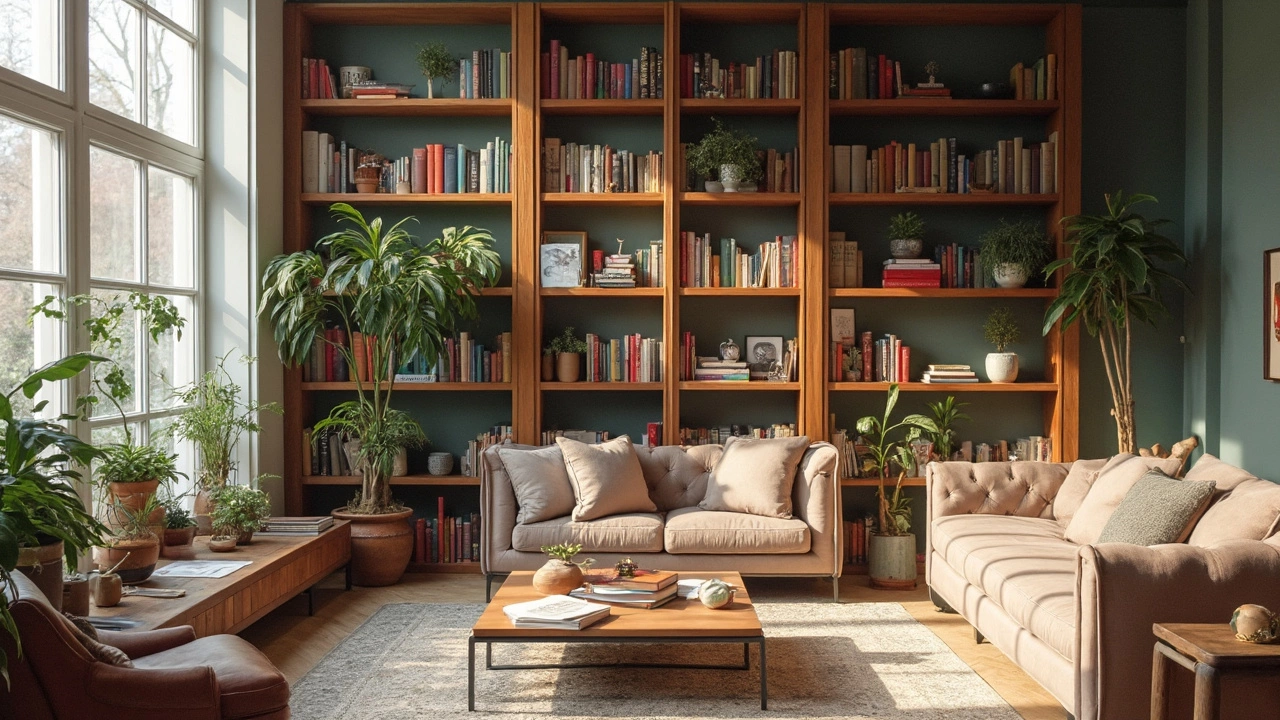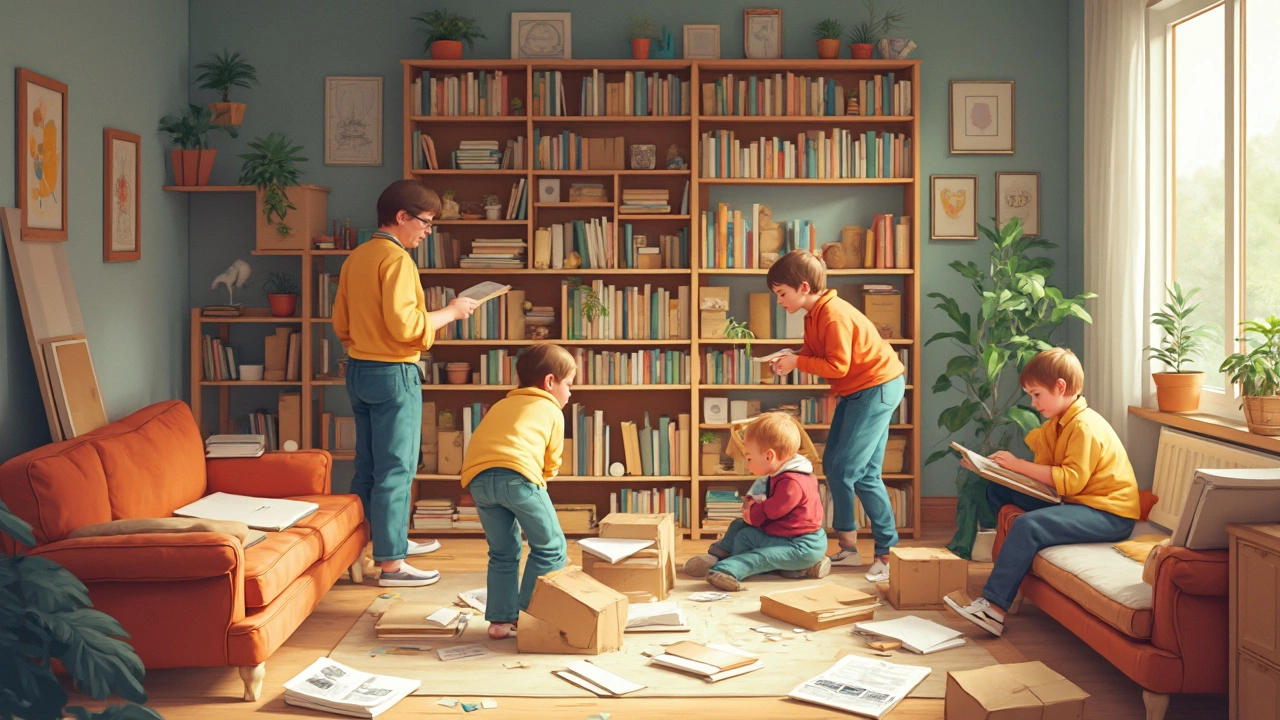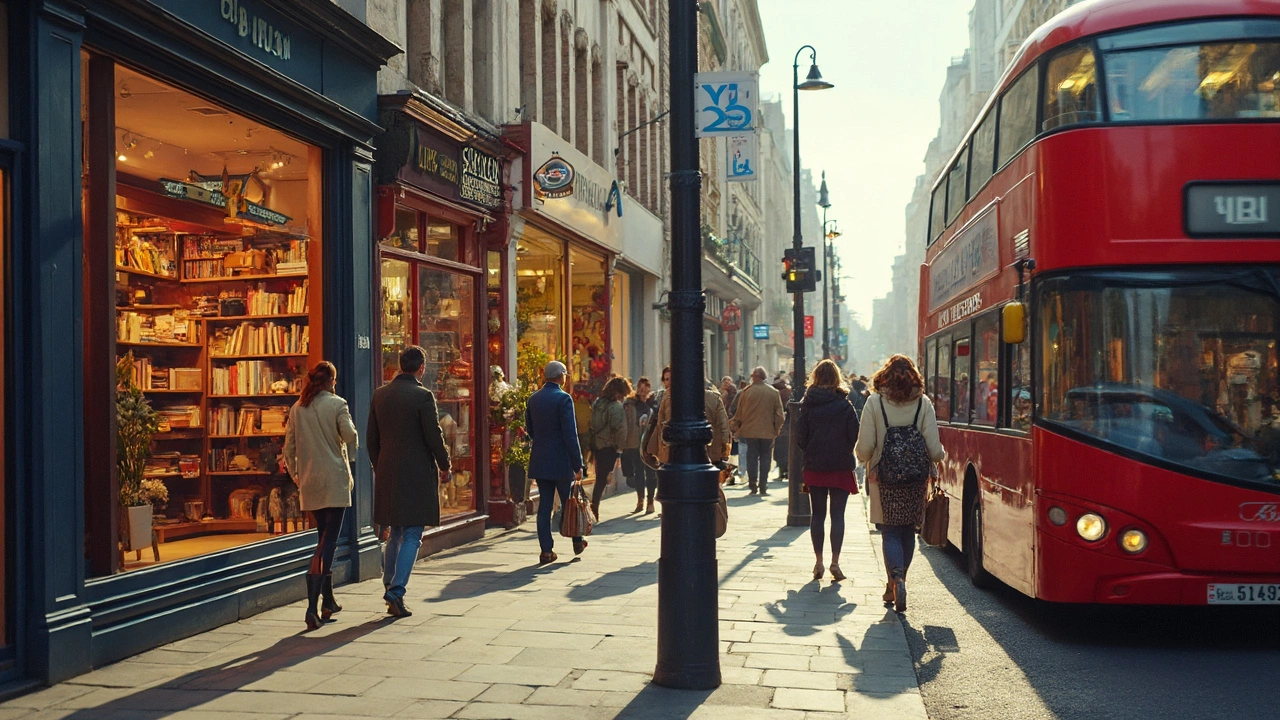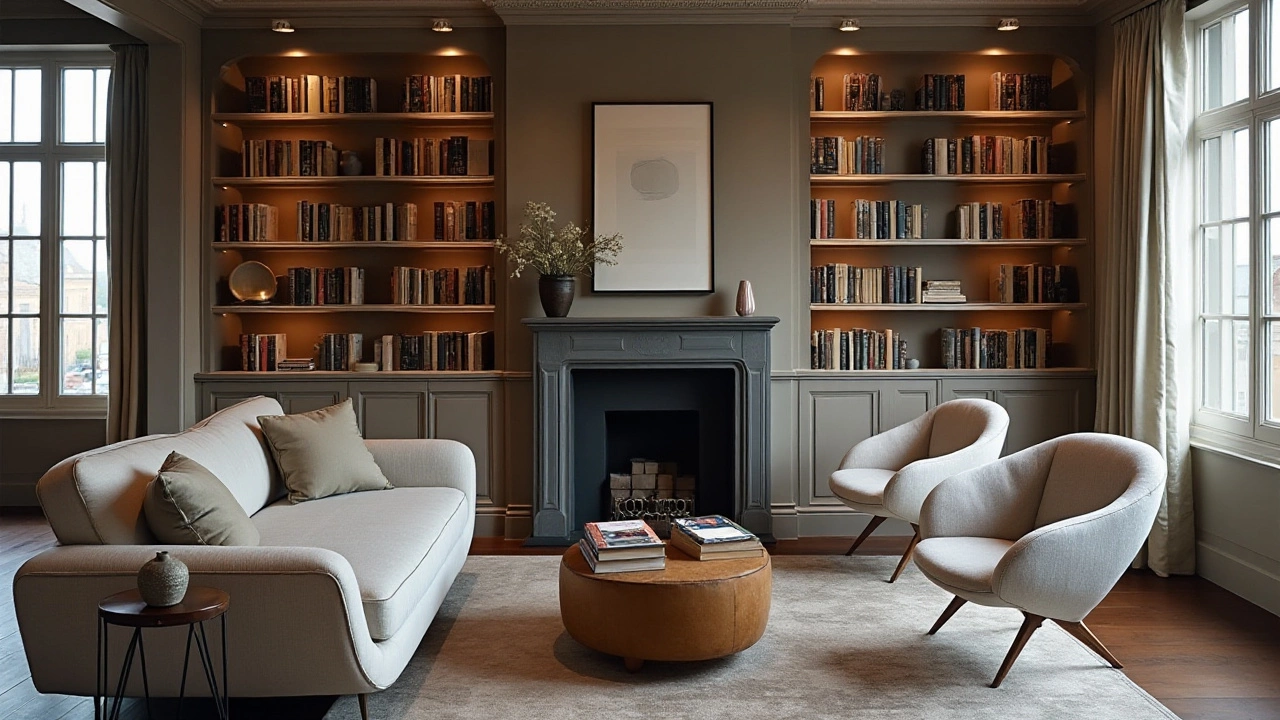Bookcases: How to Choose, Place, and Style Them for Any Home
If you’re staring at a wall full of books and wondering where they should go, you’re not alone. A good bookcase does more than hold paper – it can define a room, add character, and even hide bits of clutter. Below you’ll find straight‑forward advice on picking the right piece, finding the best spot, and styling it so it looks intentional, not just a pile of shelves.
Finding the Right Bookcase for Your Space
First, measure the floor area you have. For a small bedroom, a narrow tall unit (think 30‑inch width) can reach up to the ceiling without crowding the floor. In a living room, a low, wide case works as a room divider and display platform.
Materials matter, too. Solid wood gives a warm, rustic feel that fits a cottage vibe, while metal frames feel modern and can handle heavier loads. If sustainability is a priority, look for reclaimed timber or FSC‑certified wood – many UK artisans, like Rustic Social, offer pieces that are both eco‑friendly and stylish.
Don’t forget the height of your ceiling. A bookcase that’s too tall will make the room feel cramped; a piece that’s too short may look out of place. Aim for a height that lets you reach the top shelf without a ladder, or add a small step stool that doubles as décor.
Styling and Organizing Tips
Once the case is in place, think about balance. Start with larger books on the bottom shelves – they provide a sturdy base and keep the case from tipping. Stack a few vertical rows, then fill gaps with horizontal stacks. This creates visual interest and makes the shelves feel full without overloading them.
Mix in decorative items. A small plant, a ceramic vase, or a framed photo adds personality and breaks up the monotony of rows of books. Keep the rule of three in mind: group items in threes to create a natural rhythm.
If you have limited space, consider adding pull‑out drawers or baskets at the bottom for items you don’t want on display. This way the case stays tidy, and you still have easy access to things like knitting supplies or spare blankets.
Lighting can transform a plain shelf into a showcase. A simple LED strip on the underside of a top shelf highlights titles and adds a cozy glow. For larger rooms, a floor lamp positioned nearby can draw attention to the bookcase while providing reading light.
Finally, think about the room’s flow. A bookcase placed opposite a sofa can become a focal point, while one tucked into a hallway can serve as a mini gallery. If you’re using a case as a room divider, leave an opening for an eye‑level gap so people can see through without feeling blocked.
Whether you’re furnishing a tiny studio or a spacious cottage, the right bookcase can tie the whole look together. Measure, pick a material you love, and style it with a mix of books and personal items – you’ll end up with a functional piece that also feels like a statement.
Are Bookshelves Still in Style? Your Guide to Modern Bookcases
Wondering if bookshelves are still trendy? This article breaks down how bookcases remain relevant in today's homes, mixing function with style. Find out why people keep using them, how to fit them into modern spaces, and what makes some shelves stand out. Whether you're a book lover or need extra storage, get real tips for using bookcases without cluttering your space. Practical advice, eye-opening facts, and design ideas all packed in.
MoreWhere Is Most IKEA Furniture Made: Bookcases Unpacked
People often wonder where their IKEA bookcases really come from. This article breaks down where most IKEA furniture, especially bookcases, are made and why locations matter. You'll learn how IKEA chooses factories, which countries play the biggest roles, and what it means for price and quality. Get some surprising facts about supply chains and tips for smart shopping. This guide helps you make sense of that flat-pack world before you buy your next bookcase.
MoreWho Competes with HomeGoods in the Bookcase Market?
Diving into the competitive world of bookcases reveals how various retailers stack up against HomeGoods. We'll explore who offers the best deals, style, and functionality in bookcases. From budget finds to high-end gems, discover where to look for that perfect piece. Whether you're redecorating or just browsing, understanding the competition helps you make the best choice. Get ready to navigate the exciting landscape of home decor and furniture.
MoreDesigners' Backward Book Display: A Modern Twist on Bookcases
Many designers are choosing to display books with their spines facing inward on bookcases. This trend may seem puzzling at first, but it offers practical and aesthetic advantages, like creating a uniform, minimalist look that complements various decor styles. Additionally, backward book displays can be seen as a creative statement or unconventional way to keep personal titles more private. Explore the cultural and design motivations behind this intriguing styling choice.
More



